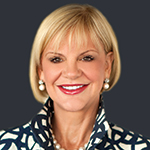 Now, perhaps more than ever, business owners must manage their wealth in ways that help ensure security while positioning them to take advantage of opportunities in both the near or long term. Whether they are growing their businesses or simply preparing themselves and their employees for the future, the current environment requires that wealth management be as much a part of business as profitability.
Now, perhaps more than ever, business owners must manage their wealth in ways that help ensure security while positioning them to take advantage of opportunities in both the near or long term. Whether they are growing their businesses or simply preparing themselves and their employees for the future, the current environment requires that wealth management be as much a part of business as profitability.
Business owners — responsible both for family and business finances — would be wise to make time in their frenetic schedules to develop, implement and monitor a comprehensive, well-crafted plan to help achieve their personal goals as well as maintain and attract talented employees while operating their companies efficiently. By working closely with experienced advisors to help them determine and plan for their financial needs and goals, they can develop effective strategies while continuing to focus on their real interests: their families and their businesses.
Many of the truisms of yesterday no longer provide valid guidelines. To get a handle on the changes in practices and even attitudes toward wealth management that today’s economy has fostered, Glenn Swain went inside the industry to speak to professionals in asset management, private banking, credit unions and financial planning for this issue’s cover story.
The skills gap’s effect on the work force remains a hot-button issue as our economy struggles to recover. With education, then, in the spotlight, attention has been given to assessing and comparing schools’ performance by quantifying specific skills in standardized testing. In this issue’s “Roundtable” feature, Peter Weddle, former CEO of Job Bank USA, Inc., questions this reliance as he offers evidence that there is no clear correlation between standardized testing and the knowledge and skills our youth will need to prosper in the 21st-century world of work.
Don Rodriguez gives us a look at the development of entertainment districts in our city in his “Focus” article on the dynamics needed to make them a success and the impact they have on the economy. This issue’s “Marketing” feature explores why and how a company can tap into its customers as an effective resource to drive its sales and marketing efforts and fuel its growth. And in his final article for the three-part “Business Education” series, Dennis Niven offers valuable information to business owners about “The Crucial Monthly Close.” Also in this issue is a Special Section devoted to profiles of top luxury residential real estate agents in our community and some of their high-end properties.
Covering diverse subjects in each issue, In Business Magazine focuses on content to benefit business in the Valley. I enjoy reading the magazine every month and I’m pleased to help present this month’s issue.
Sincerely,
Deborah Bateman
Executive Vice President, Director of Wealth Strategies
National Bank of Arizona
Deborah Bateman is National Bank of Arizona’s executive vice president and director of wealth strategies. She oversees the delivery of products and services for the bank’s high-net-worth individuals and is responsible for the NB|AZ Private Bank, NB|AZ Wealth Management and Executive Banking. Bateman, who has more than 35 years of banking experience, is also responsible for the bank’s Nonprofit Banking, Women’s Financial Group and other key departments. Bateman’s extensive community leadership spans a variety of organizations and causes, including Fresh Start and The O’Connor House, and she has been honored with several community awards.
















